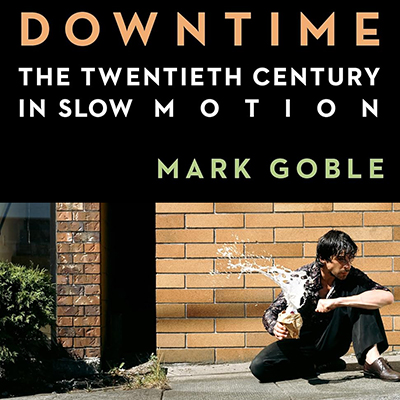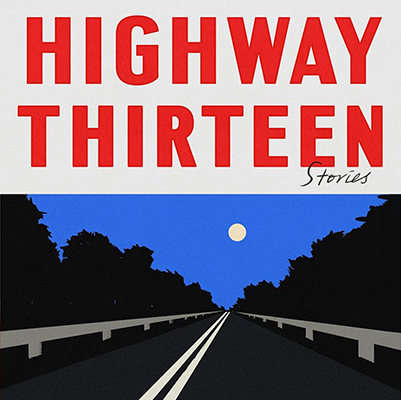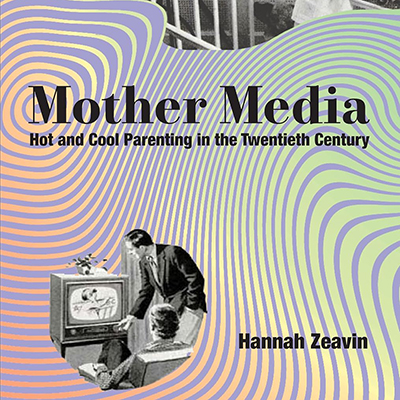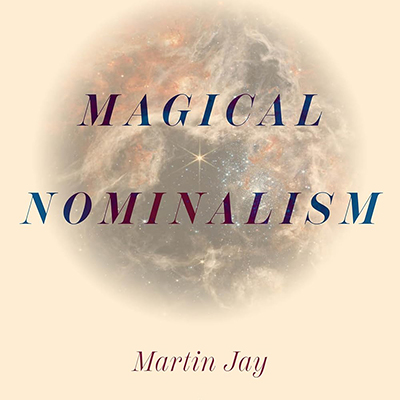The Townsend Center presents a lunchtime series celebrating the intellectual and artistic endeavors of the UC Berkeley faculty. Each Berkeley Book Chat features a faculty member engaged in conversation about a recently completed publication, performance, or recording. The series highlights the extraordinary breadth and depth of Berkeley’s academic community.
Lineages of the Global City: Occult Modernism and the Spiritualization of Democracy
Shiben Banerji explores the forgotten history of the occult foundations of the early 20th-century global city.
Andreja Novakovic offers the first philosophical study of Belgian filmmaker Chantal Akerman's deeply personal body of work.
Whiskerology: The Culture of Hair in Nineteenth-Century America
In Whiskerology, named a New Yorker Best Book of the Year, Sarah Gold McBride offers a surprising history of human hair in nineteenth-century America — where length, texture, color, and coiffure became powerful indicators of race, gender, and national belonging.
Why do we look away from the suffering of others, cover our faces in shame, and lower our heads in grief? Benjamin Saltzman explores these gestures in art, poetry, and philosophy as an essential language for our uncomfortable engagements with the world.
Past Events
The Many Names of Anonymity: Portraitists of the Canton Trade
Examining how Western art history has misconstrued names and identities in Chinese art, Winnie Wong proposes new ways of studying anonymity, copying, and the emergence of author names in the long 18th century.
Movable Londons: Performance and the Modern City
Julia Fawcett looks to the Restoration theater to understand the emergence of London as a modern city after the Great Fire of 1666.
The Future of Revolution: Communist Prospects from the Paris Commune to the George Floyd Uprising
How might a 21st-century revolution against class society succeed? Jasper Bernes synthesizes from a history of failure the key criteria for success.
Artificial Humanities: A Fictional Perspective on Language in AI
Nina Beguš explores how literature, history, and art can deepen our understanding of artificial intelligence and guide us toward a more thoughtful future for AI.
In his exploration of plays named after objects, Mario Telò offers a new approach to the politics of familial and social relations in Roman comedy.
Concrete Encoded: Poetry, Design, and the Cybernetic Imaginary in Brazil
Nathaniel Wolfson shows how the concrete movement in art and poetry — which burst onto Brazil’s cultural stage in the 1950s, during a dizzying period of modernization — presciently grappled with an emerging information age.
Mark Goble explores how slow motion in film and literature reveals a deep cultural fascination with the uneven speeds of modern life and our ability to comprehend them.
Fiona McFarlane's gripping collection of short stories explores the reverberations of a serial killer’s crimes in the lives of everyday people.
Hannah Zeavin tells the complicated story of American techno-parenting, for an object lesson in how using technology in our most intimate relationships became a moral flash point.
Magical Nominalism: The Historical Event, Aesthetic Reenchantment, and the Photograph
In this bold, wide-ranging study, Martin Jay examines the conflict between “conventional” and “magical” nominalism in philosophy, history, aesthetics, and photography.













